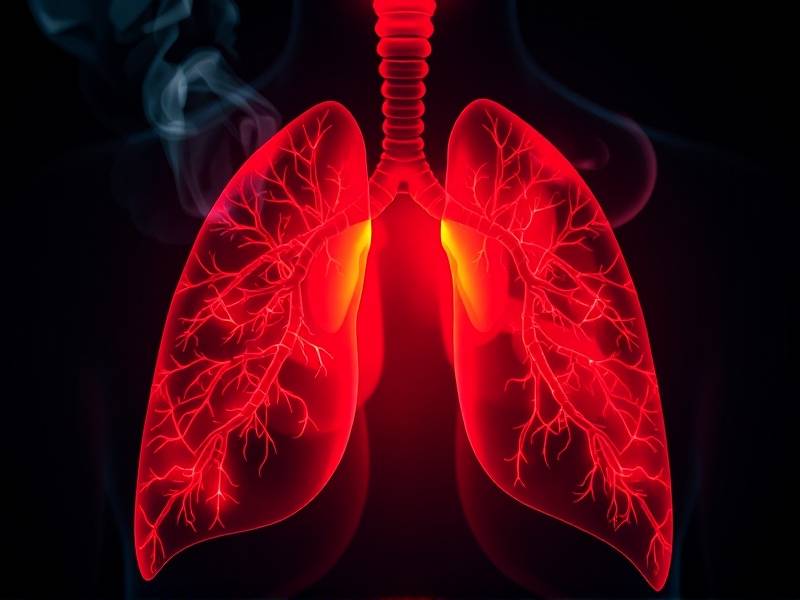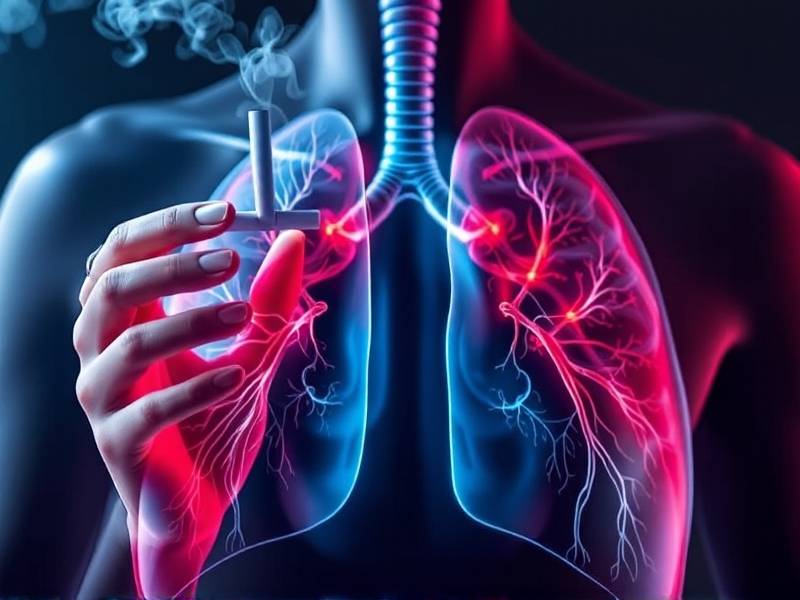How to Make Your Lungs Stronger After Quitting Smoking
Strengthen Your Lungs Post-Quitting Smoking: A Comprehensive Guide
Introduction: Quitting smoking is a significant step towards a healthier lifestyle. However, the journey doesn't end with the last puff. Many ex-smokers often wonder how to repair and strengthen their lungs after years of tobacco exposure. In this article, we will explore effective strategies to enhance lung health post-quitting smoking, backed by scientific research and expert advice.
Understanding Lung Damage

-
The Impact of Smoking on Lungs Smoking causes significant damage to the lungs, leading to conditions such as chronic bronchitis, emphysema, and lung cancer. The harmful chemicals in cigarettes inflame the airways and impair lung function over time.

-
Healing Process Post-Quitting The good news is that your lungs start healing almost immediately after quitting smoking. Within 48 hours of your last cigarette, your risk of heart attack begins to decrease, and your sense of smell and taste begin to improve.
Strategies for Strengthening Lungs
-
Regular Exercise Engaging in regular physical activity can help improve lung capacity and overall cardiovascular health. Activities such as walking, jogging, cycling, or swimming are excellent choices.
-
Breathing Exercises Practicing breathing exercises can enhance lung function and improve oxygen flow throughout the body. Techniques like diaphragmatic breathing or pursed-lip breathing are particularly beneficial.
-
Healthy Diet A balanced diet rich in fruits, vegetables, lean proteins, and whole grains can support lung health by providing essential nutrients and antioxidants that combat inflammation.
-
Avoiding Environmental Hazards Minimize exposure to secondhand smoke, air pollution, dust particles, and other irritants that can further damage your lungs.
-
Quitting Other Habits Avoiding other harmful habits such as excessive alcohol consumption or using recreational drugs can also contribute to improved lung health.
Supplements for Lung Support
-
Vitamin D Research suggests that vitamin D may play a role in protecting against respiratory infections and improving lung function.
-
N-Acetyl Cysteine (NAC) NAC is a supplement known for its ability to break down mucus in the lungs and may help alleviate symptoms of chronic bronchitis or emphysema.
-
Omega-3 Fatty Acids Omega-3 fatty acids have anti-inflammatory properties that may benefit individuals with respiratory conditions.
Monitoring Your Progress
-
Regular Check-ups Regular visits to a healthcare provider can help monitor your lung function and detect any potential issues early on.
-
Pulmonary Function Tests (PFTs) PFTs measure how well your lungs are working by assessing factors like airflow rates and lung volume.
Conclusion: Making your lungs stronger after quitting smoking requires a combination of lifestyle changes, regular exercise, healthy eating habits, avoiding environmental hazards, and considering supplements for additional support. By taking these steps seriously, you can significantly improve your quality of life post-quitting smoking and reduce the risk of developing serious respiratory conditions in the future.
